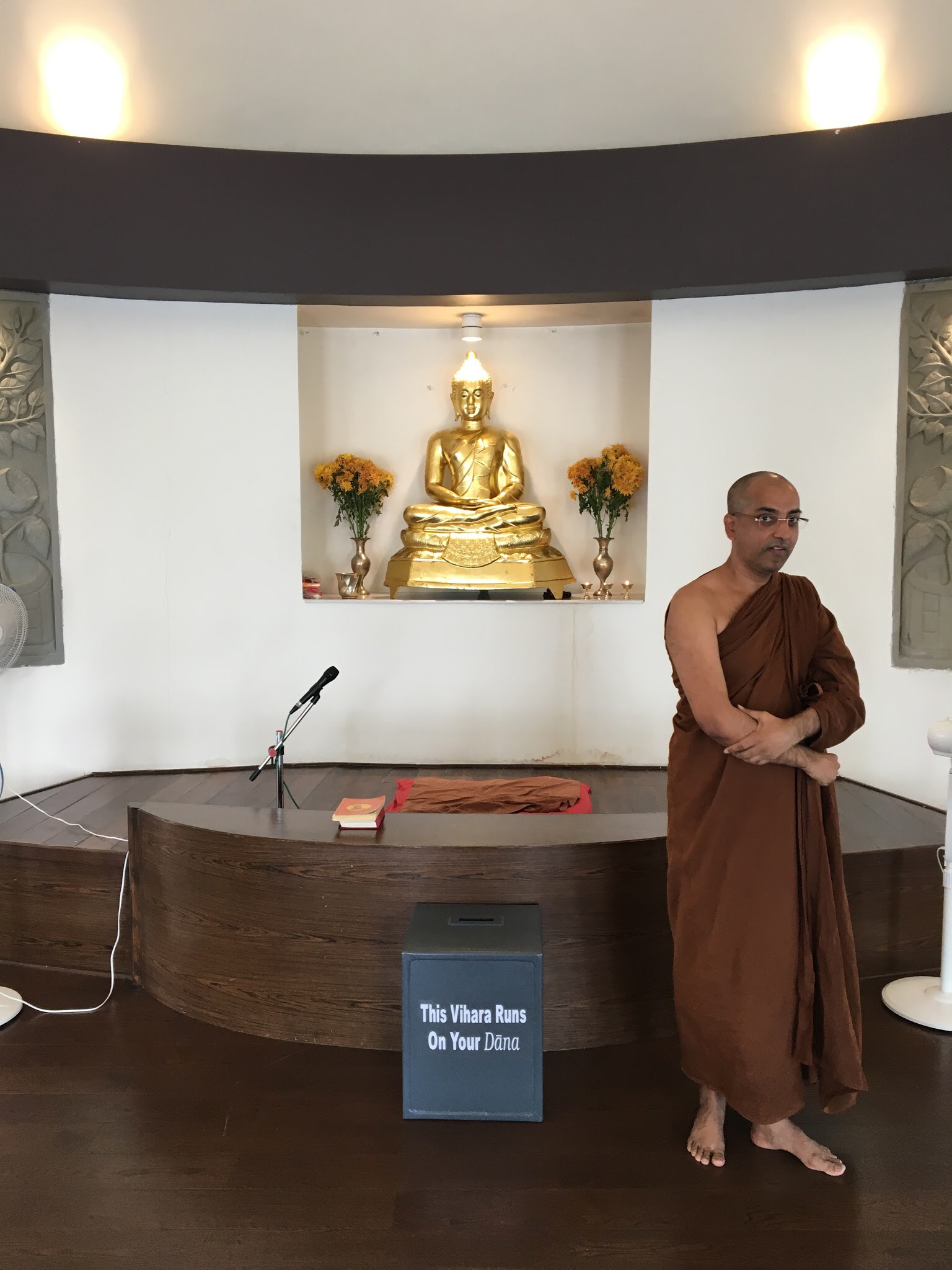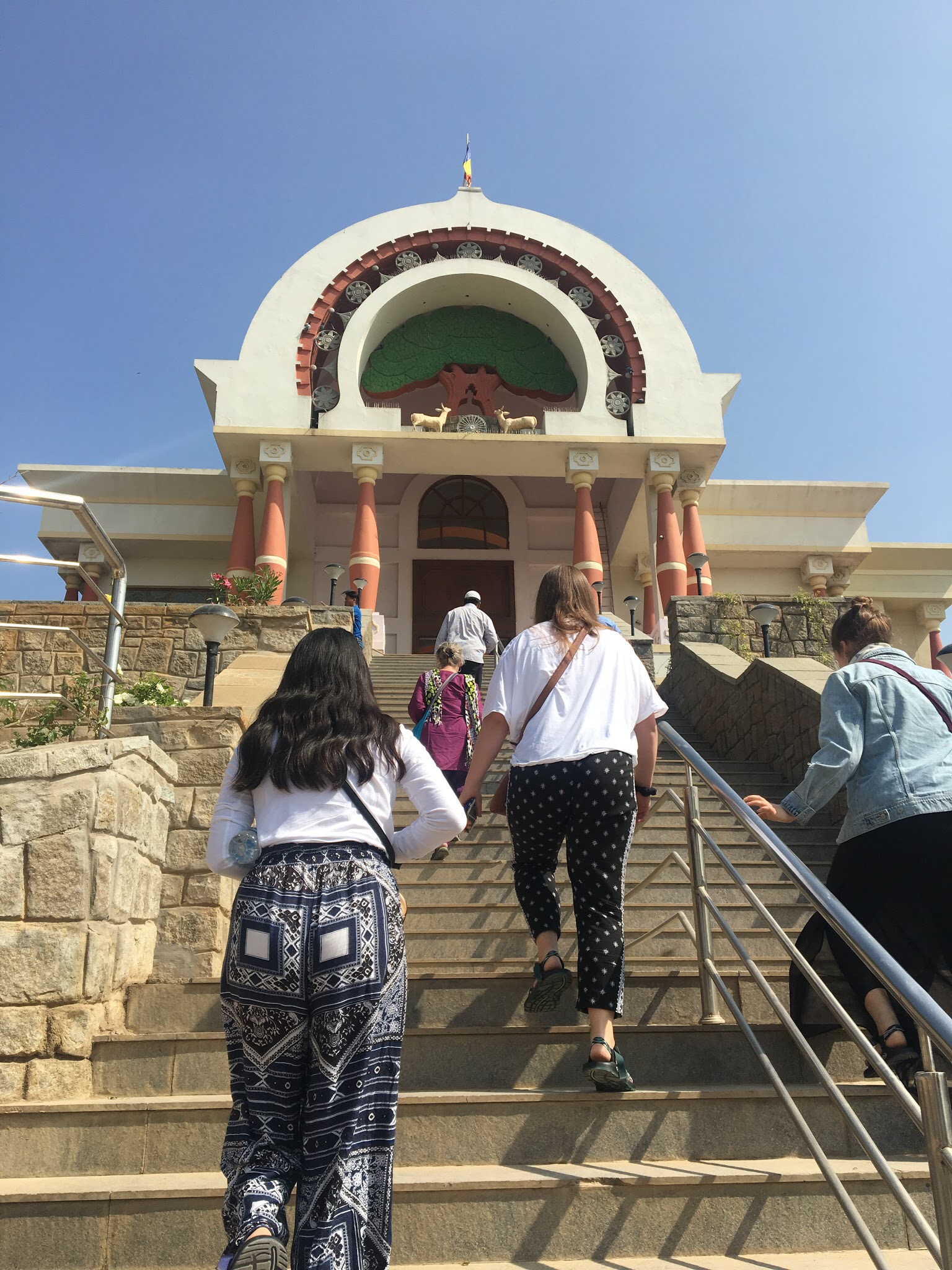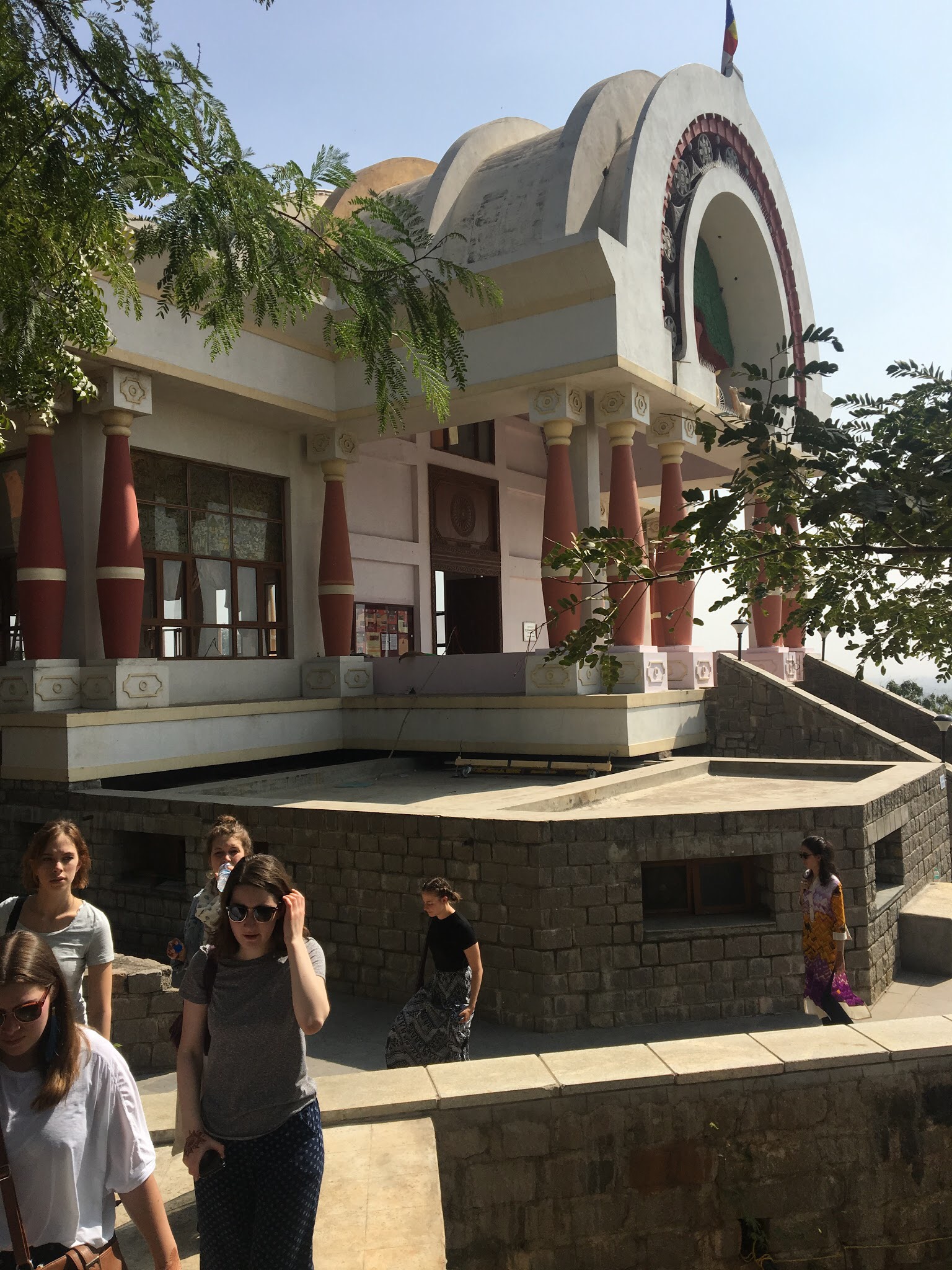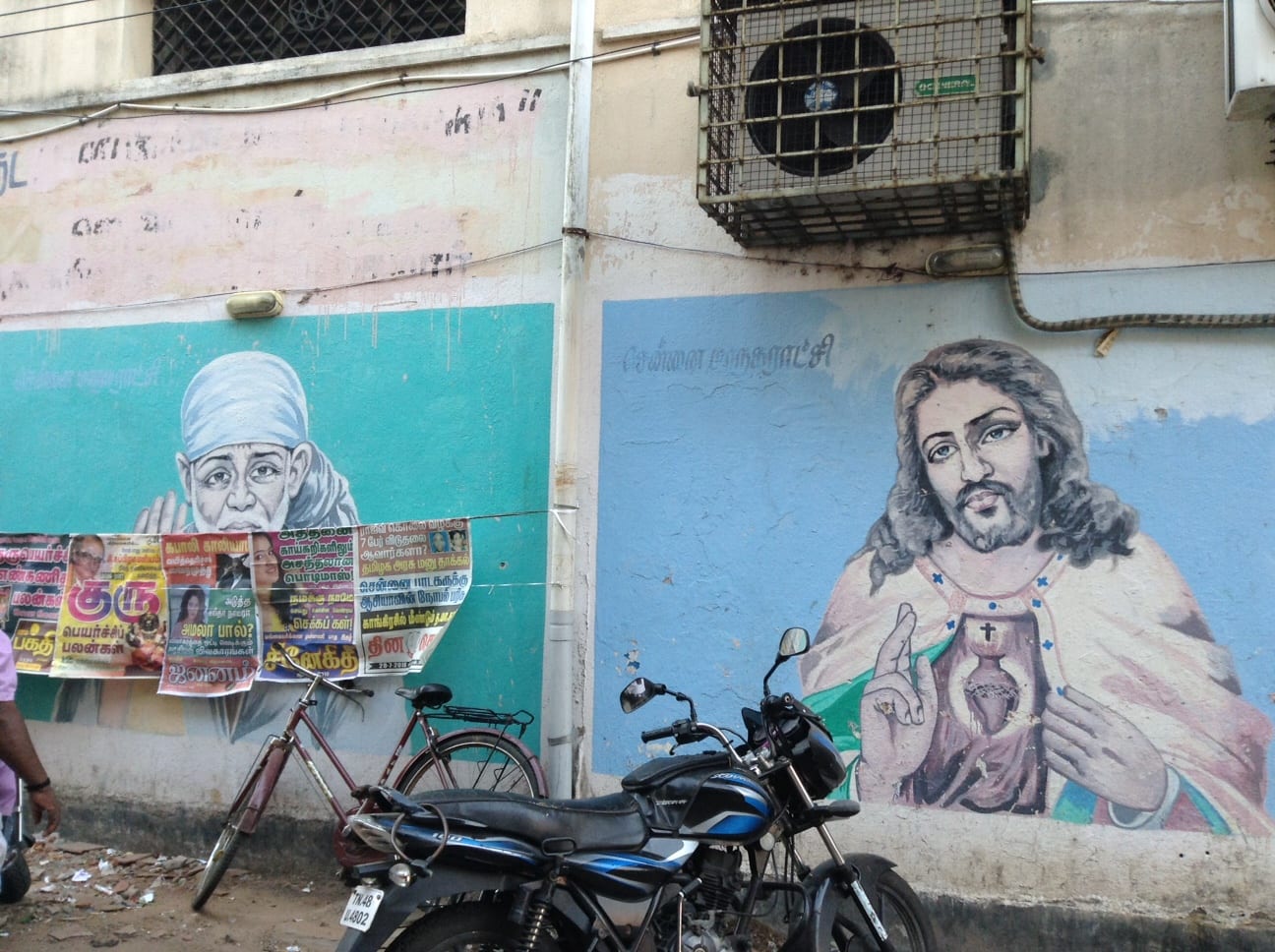Mahabodhi Buddha Vihara 9 January 2019 Iain Carlos

The Monk who lectured us at the Mahabodi.

Walking up to the monastery.

Side view of the monastery.
At the Buddhist temple I was able to smell the candles lit by the monk when he walked in. His voice was soft but firm, and his hand was steady as he pushed his glasses up from the tip of his nose.
Searching for light in the temple
The most telling thing the monk uttered was the phrase “in true Buddhism” after having told us about the benefits of mindfulness. Considering what our group had read about Buddhism prior to our visit to the Mahabodhi Buddha Vihara, I think it is likely that the monk may have been making a bit of a dig at the Mahayana schools of Buddhism, which focus more on chanting the name of Amitabha Buddha or contemplating Zen Koans than practicing mindfulness or otherwise adhering to what is outlined in the Pali Canon.
I found the monk’s description of his own journey to Buddhism to be fascinating. He was born into a Brahman family, and it wasn’t until 2010, after the death of his parents and the marriage of his sisters that he became a Buddhist. His path to Buddhism mirrors the Buddha in that he renounced a life of privilege in order to seek enlightenment, and so this is indicative of the fact that Buddhism remains an appealing alternative to the harsh reality of the Hindu caste system. The monk differed from the Buddha however in that he waited until he had no more family responsibilities before he became a monk. This seems like in interesting Buddhist moral dilemma. Was he being cheeky in waiting to renounce his obligations, or was he being responsible?
It was also telling that the room in which we spoke to the monk contained a sign that said “The Vihara Runs On Your Dana” (the temple runs on your charity) just below an ornate shrine to the Buddha. Indeed, while the divide between the monks/nuns and lay people in Buddhism seems to be alive and kicking, much like in Jainism, those who have decided to live a life of renunciation are still dependent upon those entrenched in material activities.
